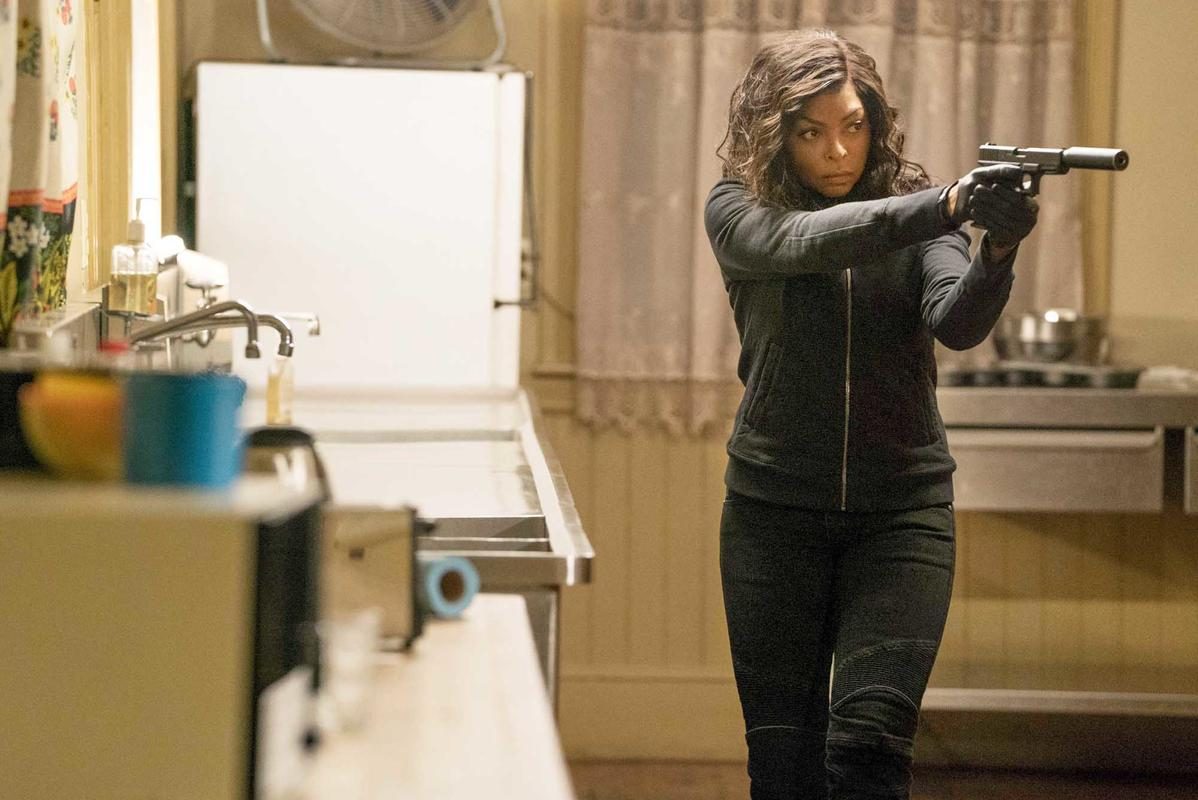

Going into Proud Mary, I had one question on my mind: why was it so hard to find any coverage for this film? Outside of a theatrical trailer that heavily paid homage to the Blaxploitation genre, Screen Gems barely advertised Proud Mary and early screening reviews were non-existent. Sure Liam Neeson’s The Commuter was getting all the attention, but was Screen Gems really that embarrassed by what they had, even by January movie standards? After watching the film, the answer is a resounding “kind of,” but not because the final product is awful. Rather, Proud Mary disappoints by wasting a seemingly good premise and strong performance by Taraji P. Henson with a narrative that fails to truly develop the world its characters inhabit.
The fact that Proud Mary’s story should have worked, yet missed the mark time and time again, proves its biggest flaw. In the opening scene, we see Mary Goodwin (Henson) perform a hit on someone who the film barely specifies, only to be racked with guilt over the realization that she had left the target’s son Danny (Jahi Di’Allo Winston) an orphan. We don’t get a general understanding of her employer until late into the film’s first act, but the movie expects me to care for Danny’s fate when it immediately jumps a year later, revealing that he now works on behalf of another crime boss. When Mary discovers Danny after all this time, her maternal instincts take over and she brings him home as a means of making up for her hit. This leads to her axing the crime boss, played by Xander Berkeley, and inadvertently starting up a gang war for her boss Benny (Danny Glover) and his son Tom (Billy Brown), resulting in everything going to hell. For Mary though, she just wants to protect Danny from harm, no matter who has to face the barrel of her guns.
Watching Proud Mary, I was reminded a lot of Léon: The Professional, which also centered on a hitman taking pity on a child orphaned by corruption. While the events leading to this relationship are different, that film succeeded story-wise by building a relationship between Léon and Mathilda that felt natural. Their interactions made you care for the two characters while making up the backbone of the film’s second half. Here, while the dynamic between Mary and Danny is good, Proud Mary introduces Mary’s dilemma right out of the gate and expects the audience to immediately follow along. I get what the movie was trying to convey – Mary feels guilty for leaving Danny parentless and thus must betray the trust of her work “family” to protect him – but this plot point could have been done a lot better.
It’s the performances that really keep Proud Mary afloat even when the story feels like it’s treading water. Taraji P. Henson is without a doubt its strongest player, carrying each scene effortlessly in both dialect and physical performances. The Hidden Figures actress is simultaneously a badass with a gun and caring with her surrogate child, balancing both sides in a manner that successfully emulates a Pam Grier-era action star. Likewise, Danny Glover is solid as Mary’s boss/surrogate father figure, as is Billy Brown as Mary’s former romantic partner, and Jahi Winston offers a strong child performance that makes his dynamic with Mary feel believable.Unfortunately, these character interactions are hindered by awkward dialogue sequences that are shot like director Babak Najafi was on a limited budget, as well as a soundtrack that, despite harkening back to classic 1970s scores, feels off-putting in how they affect a scene’s overall tone.
These cinematography and editing problems also extend to the film’s action sequences, something that the trailers made out to be a selling point. Many times I saw a gunfight cut between three different shots when, had they stuck with the long take of one specific shot, the action would have felt much cleaner. These scenes never feel disorientating, but they nevertheless highlight a pacing problem aligned with the approach to choreography. To put it simply: I felt like I was watching a fight more akin to Taken than John Wick. These moments feel more polished in the third act, during which Mary proves her skills in a rather satisfying gunfight, but even that kind of feels disappointing in hindsight. If Najafi could make the final action scene feel fluid, why not apply it to Proud Mary’s other high-octane moments?
Verdict: 2 out of 5
There are genuine moments of enjoyment sprinkled throughout Proud Mary, from the pastiche opening credits to the final shootout, but they are just that: moments. Everything in between offers a clichéd B-movie premise that has been done more successfully in other films. There’s definitely room in Hollywood for a character like Mary Goodwin, but she deserves a better script and a studio that will actually advertise her movie.


